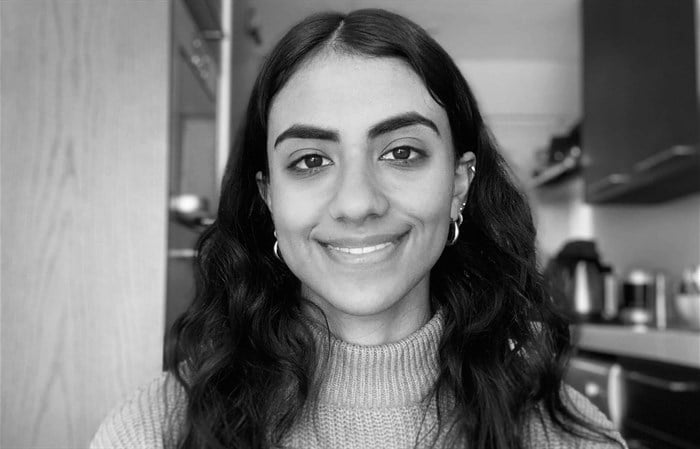#WomensMonth: Raeesa Dhorat on bridging the digital gap for African creators

The Female Voices Development Programme aims to produce creator communities that are more diverse, equitable, sustainable and inclusive. Female Voices takes place over a 12-month period and offers skills training, mentorship and resource deployment that provides strategy and support for a cohort of creators on YouTube.
We spoke with Dhorat to learn more about what the programme has achieved so far, her work and what making meaningful change really looks like…
Tell us a bit more about yourself and your work
Born and bred in Johannesburg, I moved to Cape Town to pursue my university career and immediately knew that this is where I belong.
Having lived, studied and worked here, I can successfully say that the last six years have felt like a never-ending holiday. When I’m not at my 9-5 job, which is a role that I am passionate about, you are likely find me running on the promenade, hiking a mountain or at the beach for a sunset swim.
As Female Voices, which I am currently heading up, nears its end, I am certain about the impact that my team and I have created for the broader South African creator economy. I am excited and hopeful for the future of the South African creator space and my role within it.
How did you end up in your field?
I began my career with Special Effects Media SA as an intern, I then moved into the creators team as a YouTube partner manager which gave me the opportunity to work very closely alongside the previous HOD of the Creators team to put together the 2021/2022 Female Voices.
This year, I was offered the position of head of programme. My manager at the time (Twala Ng’ambi) has always played a vital role in my career growth at Special Effects Media and is someone I am very grateful to have crossed paths with in my field of work.
Could you elaborate on the inspiration behind and inception of the Female Voices Development Programme?
According to 2021 Stats SA figures, “Black African women are the most vulnerable with an unemployment rate of 38,3%. Further disparities reveal that only 31,2% of women occupy managerial positions and that 56,2% are discouraged from joining the workforce”.
The inspiration and inception of the programme began with the great need to bridge the gap between the lack of support and investment in digital creators within the South African digital economy and the broader African one.
The programme was set for 12 months to nurture, develop and contribute to creator talent, especially female voices.
What key findings have you seen in the programme so far?
Revenue: Creators lack understanding and basic knowledge on how to make money on YouTube, whether it be via ad sense monetisation or alternative monetisation features. Throughout the programme, my team and I have consistently used our best efforts to better up-skill and empower creators on their revenue targets and how to strategically achieve them.
Data: Creators lack the motivation to better understand what their YouTube channel data is indicating to them. Throughout the programme, we have created the opportunity to empower creators in better understanding the data behind their channel on a quarterly basis.
Branding: Creators lack understanding of how to strategically position themselves to brands. Throughout the programme, we have created opportunities for creators to collaborate with other content creators and brands through strategic pitches that align with their brands.
Has the programme made the impact you were hoping for?
The programme has given us the opportunity to bring together 15 diverse female creators from all parts of the country. Keeping in mind the programme’s goal to upskill, train, and provide mentorship and resource deployment initiatives centred around strategy and support to the cohort, I can successfully say that the creators and their wants and needs have been at the centre of every decision we have made.
Over the 12 months, my team used every opportunity that we got and created to upskill, train and empower the cohort in a variety of different spaces (data, revenue, sales and production). It has been a great privilege to head up a programme that nurtures creator talent and one that is a first in Africa.
What advice do you have for brands looking to make meaningful change in their industries?
When working with creators, it's important to keep them at the centre. They are the storytellers, so let them tell it in a way that’s most authentic to their brand and followers. Avoid pushing creators into boxes and keep creating spaces that allow them to bloom, because once you have a creator on your team, you have a community.














































